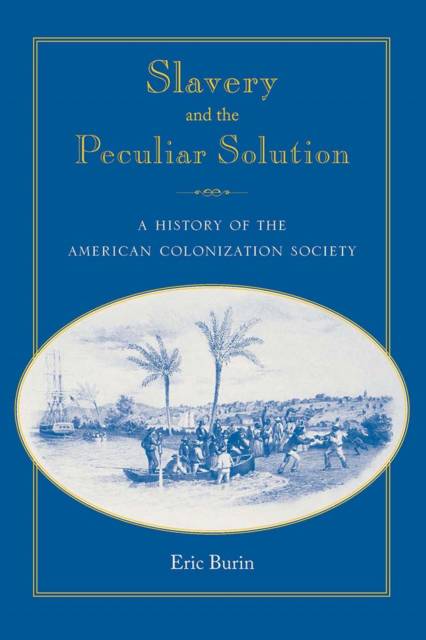
Bedankt voor het vertrouwen het afgelopen jaar! Om jou te bedanken bieden we GRATIS verzending (in België) aan op alles gedurende de hele maand januari.
- Afhalen na 1 uur in een winkel met voorraad
- In januari gratis thuislevering in België
- Ruim aanbod met 7 miljoen producten
Bedankt voor het vertrouwen het afgelopen jaar! Om jou te bedanken bieden we GRATIS verzending (in België) aan op alles gedurende de hele maand januari.
- Afhalen na 1 uur in een winkel met voorraad
- In januari gratis thuislevering in België
- Ruim aanbod met 7 miljoen producten
Zoeken
€ 38,45
+ 76 punten
Omschrijving
"Every historian working on colonization will want to read and engage this provocative history of the experience of African colonization for the manumitted, the manumitters, and their proslavery critics."--American Historical Review "One of the most insightful treatments of colonization in years."--Pennsylvania Magazine of History and Biography "Balanced, accessible, and thorough. Each of Burin's chapters explores the ACS from a specific perspective: ACS members who manumitted enslaved workers specifically to go to Liberia, the enslaved themselves, northern fundraisers, white southerners, legal authorities, and finally, the freedpeople in Liberia."--Journal of African American History "Presents a vivid portrait of the organization as a conduit through which several thousand African Americans passed from American slavery to African freedom."--Journal of American History "Conveys the image of chattel slavery not as a monolithic structure controlling all masters and slaves everywhere but as a constantly changing entity throbbing with painful issues of personal and private rights in conflict with predominant opinions about social cohesion and custom. . . . The result is a refreshingly complex picture of American slavery."--History "A meticulously researched biography of one of the oft-overlooked cul-de-sacs in American history."--Virginia Quarterly Review
Specificaties
Betrokkenen
- Auteur(s):
- Uitgeverij:
Inhoud
- Aantal bladzijden:
- 240
- Taal:
- Engels
- Reeks:
Eigenschappen
- Productcode (EAN):
- 9780813032733
- Verschijningsdatum:
- 20/04/2008
- Uitvoering:
- Paperback
- Formaat:
- Trade paperback (VS)
- Afmetingen:
- 166 mm x 226 mm
- Gewicht:
- 371 g

Alleen bij Standaard Boekhandel
+ 76 punten op je klantenkaart van Standaard Boekhandel
Beoordelingen
We publiceren alleen reviews die voldoen aan de voorwaarden voor reviews. Bekijk onze voorwaarden voor reviews.









